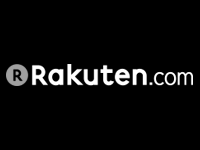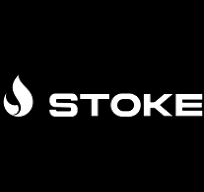Archives
Archives

Two words everyone likes to see (image courtesy of Rasmussen.edu)
In the world of recruiting, one critical step that is often taken for granted is the offer stage. Overall, this is an exciting phase to reach, peeps. Someone is interested enough to propose marriage! But unlike a typical civil union, you are potentially hitching up with someone that wants to negotiate a pre-nup, control your monthly allowance, and require reference and background checks. This is one serious date.
Once an offer is on the table, there’s still a lot of work to be done before you can celebrate. Here are some insights and bits of advice I can offer to help recruiters, hiring managers, and candidates alike navigate the process and ensure a blissful honeymoon phase.
Pre-offer. Before an offer is presented, it’s important to get all your ducks in a row to minimize the deal going sideways. As a general rule, I am always striving to keep my clients (employer and candidate) in a position to make informed decisions. To do so, each party’s requirements and key information must be communicated and considered: compensation, vacation, benefits, perks, start date, non-competes, background checks, etc. Get all your points on the table, discuss, and take everything into consideration before putting the offer together. Don’t wait until the last minute. After the final offer is presented, it is too late to mention you want to work in your pajamas on Fridays. For realz.
Whether you are a recruiter, candidate, or employer, it’s important to be transparent about requirements. Avoid surprises which only serve to contaminate the process. There’s a saying we have in the recruiting industry: Time kills deals. Don’t jeopardize your process and introduce more time and complexity than necessary.
Negotiation. Once an offer is presented, some back and forth is normal and expected. If the deltas are great, you have some work ahead of you. Just as important as what you ask for is how you ask. Adopting a rigid stance will not yield good results and just piss people off. Approach negotiations with an open mind, prioritize your list of wants (must-have, nice-to-have, icing-on-the-cake), and state your position within the context of what will make the employment proposal compelling from your point of view.
Compensation is typically the biggest variable to take into consideration and requires delicate and deft handling to ensure each party gets what they want/need. Just as importantly, it’s critical that said requirements are communicated in a way that does not come across as petty, unreasonable, and ridonkulous. Make sure early on that everyone is in the same financial ballpark.
Counter Offer. Anyone worth their salt and talented enough to receive an offer is likely already employed and will be subject to a potential counter-offensive from their current employer. Don’t be caught off-guard. Anticipate and expect a counter offer. Have a preemptive and candid discussion about a potential counter, and walk through scenarios to gauge the risk of losing a candidate. Put a solid offer together, get a firm commitment from the candidate, and cross your fingers. If the proper steps are taken, the circumstances should be compelling enough to keep the ex getting from getting back into the picture.
Acceptance. Accepting an offer seems simple enough, but this phase can also be underestimated. Ideally, acceptance should be consummated with a signed offer letter, a hand shake, and celebratory drink. Barring that, have the conversation over the phone and get the verbal commitment. Make it an occasion rather than a formality. A nice touch would include a phone call or visit from the organization’s founder, owner, or top leadership. Make the candidate feel welcomed and special. This will serve to reinforce the significance of the moment and pending union, and set the stage for a positive working relationship and dynamic. There is plenty of time to formalize with signed paperwork once this is completed.
Along the value chain of job search, the offer stage is where I believe recruiters earn a significant part of their commission. It’s during this phase when we can broker and negotiate points without feelings getting hurt, ensure everyone’s needs are met, and we can make things happen. If you are in a position to use a recruiter, take advantage of this service and maximize your chance of getting a compelling offer.
One of the most important factors contributing to a successful company is hiring. The local presence of several tech giants such as Amazon, Microsoft, and Google, a shortage of employees with the right skills, and the escalating war for talent make recruiting a daunting and labor intensive challenge. If assembling a world class team is such a pivotal part of building a company why would you even think to outsource the process? Here are a few reasons why it might make sense for you to work with a trusted recruiting partner.
1) It allows you to focus on your business.
Whether you’re hiring for an entry level role or a manager the process takes valuable time and resources away from you and your team. It’s easy to become overwhelmed by the volume of resumes in order to find qualified candidates, screenings candidates, and scheduling interviews for the few candidates that you THINK might be a fit. Multiply that effort by the number of open positions, and suddenly recruiting talent becomes a full time job leaving little time to spend on your core business. An outside recruiting partner can ensure that you only meet top candidates to help save you considerable time and energy.
2) Cost reduction.
Recruitment is not only time consuming, but costly as well. Employing an in-house recruiter consist of labor costs and the associated expenditures that allow the recruiter to effectively do their job. These cost include job-board postings, specialized applicant tracking tools, up to date recruiting technologies, and much more. When working with an outside resource these expenses are bundled into your agreed placement fees. With the popular “contingent” placement model working with a recruiting partner will not cost you a dime until your position is filled.
3) Periods of high growth.
There are times when your company will experience times of high growth, including adding additional headcount. It could also mean that your company might just need some temporary staff to get through the resource spike. Regardless, additional time is required to make sure you have the appropriate staffing complete these projects. An external recruiting partner will have the available network and bandwidth to help scale your teams. Your recruiting partners can also take over internal recruiting processes to free up precious hours.
4) Ability to compete.
With limited tools smaller companies tend to lack access to the same candidate pool as larger companies. Working with an external recruiting partner will allow companies to compete with larger companies that have the ability to reach a broad range of potential candidates. In addition to the extended reach your recruiting partner can provide, they can also help you quickly move on candidates that are actively searching for new opportunities. This will elevate your chances of onboarding these candidates before other companies even know they’re on the market.
5) Streamlined recruiting process.
Recruiting can seem like a disjointed process at times. Keeping track of candidates, scheduling interviews, providing feedback to managers and candidates, and presenting and negotiating offers takes a lot of coordination. An outsourced recruiting resource has the ability to take over the entire process to allow one point of contact, thus creating a seamless process for both you, the employer, and the candidates that you are hoping to hire.
Engaging and hiring an outside resource has the potential to become a partnership that will save your company time, money, and energy. A good partner will be working for you and your company’s best interest and will dedicate key resources to help you grow, so it is important to find a firm that is match for both you and your team. Good partners will be there for you when times are tough and during periods of great success.


















